An exciting trilogy where an astronaut, nicknamed Nuke and working on an interstellar gate, is accidentally thrown so deep into the universe there is no way for him to get home. He does, however, find life on a nearby planet, one in which the citizens look very different from him.
Although tense at first, he finds these aliens think he is the forerunner to the return of their deity and has been charged with reuniting the clans living on six different planets. What is stranger to him still is that while everything seems so foreign from anything he has ever experienced, there is an element that also feels extremely familiar.
He has to gain the trust from each alien clan and demonstrate through various acts that he is the one they have been waiting for so each culture can fully accept him and follow him. But for the aliens to accept him as the prophet to their deity, Erabon, he has to first accept it and believe it himself.
Book Information
Release Dates: Book One: Myeem: 23-Dec-2020
Book Two: Sharab: 06-Apr-2021
Book Three: Qerach: 01-Oct-2021
Publisher: Carpenter’s Son Publishing
Number of pages: Myeem/271; Sharab/249; Qerach/347
Link to books on Amazon:
Book One: Myeem: Amazon.com: Myeem: Book One of the Erabon Prophecy Trilogy (Erabon Prophecy Trilogy, 1): 9781952025129: Randy C Dockens: Books
Book Two: Sharab: Sharab: Book Two of the Erabon Prophecy Trilogy (Erabon Prophecy Trilogy, 2): Dockens, Randy C: 9781952025136: Amazon.com: Books
Book Three: Qerach: Qerach: Book Three of the Erabon Prophecy Trilogy (Erabon Prophecy Trilogy, 3): Dockens, Randy C: 9781952025143: Amazon.com: Books
Welcome, Randy! Your Christian Science Fiction Series, ERABON PROPHECY TRILOGY, sounds absolutely exciting. Can you tell us the story behind that intriguing title?
Interestingly enough, the genesis for the storyline happened over dinner. My wife and I met with some friends of ours for dinner one evening at a local restaurant. The conversation went far and wide and even verged on the ridiculous. We started talking about aliens, and our conversation at first posed the general types of questions most think about: What would aliens think of us humans? How different would they look from us? How
advanced would their technology be from ours? Those thoughts then led to deeper questions. What would be their core beliefs? Would they serve a different type of God than we do? As we talked, we came to the realization that if truth is truth, then our God would also be their God. The way they looked, the customs they followed, and the way they worshiped may be different, but the essence of who God really is should still be the same if God is really God of the universe. That dinner conversation was the genesis of the trilogy that developed: Erabon Prophecy Trilogy.
One of the main themes of this trilogy is unity through diversity. Each of the alien clans look remarkably different from each other. Yet they must unite for their future to be as promised to them by their deity, Erabon. In Hebrew, the name erabon means “to pledge.” As these alien clans’ deity
was pledged to return to them if they reunited, it seemed Erabon was an appropriate name for their deity. Each alien clan has only one piece of the puzzle of how they are to return to their deity, Erabon. Yet they treat their piece of the puzzle as the entire puzzle. They don’t seem to realize they are missing an understanding and revelation about their deity they have not considered. Each clan must realize their bias and overcome that issue for unity of worship of Erabon to occur across all clans. Unification can come no other way.
A second main theme of this trilogy is God is God everywhere. The main character, Nuke, is originally stunned by this revelation as the Myeemian culture is so vastly different from his own. Yet, Ti’sulh, one of the Myeemian leaders, states she is surprised he is surprised at this revelation because if God created the whole universe and truth comes from him, then that same truth would reside throughout his universe.
Each clan has a hard time accepting that Nuke, not only an outsider but an off-worlder, can help or understand anything about their culture or their deity. In each case, Nuke must perform some type of miracle for these clans to realize Erabon has appointed Nuke to lead the way back to unification of the clans and the return of Erabon.
The names of each planet are also derived from Hebrew or Greek. Myeem, the water planet, comes from the Hebrew word, mayim, for water. Eremia, the desert planet, comes from the Greek word erios for desert. Sharab, the fire planet, comes from the Hebrew word, sharab, for scorched land. Ramah, the mountainous planet, comes from the Hebrew word, ramah, for height. Qerach, the ice planet, comes from the Hebrew word, qerach, for ice crystals or frost. Aphia, the air planet, comes from a combination of two Hebrew words: aph, meaning nose, and iah which is a suffix that often means God. Technically, that would mean “God’s nose” but air would come from that, so I felt it still apropos.
Can you tell us a little about your main characters?
There are several prominent characters in the different books of the series but there are two that are the overarching main characters throughout the entire series: Nuke and Ti’Sulh.
Nuke (born Yohanan Chaikin) has always felt different from others because of his skin’s unusual ability to conduct electricity. This was also how he got his nickname, Nuke. His skin conductance inhibited the electronic equipment the physician used to do his medical examination physical when he entered the Academy. His friends said he was “nuclear” and nicknamed him Nuke. He later came to accept his nickname and began to prefer it over his birth name. Yet this characteristic allowed him to accomplish amazing things on these alien worlds. For example, hydrolyze water into hydrogen and oxygen so he can breathe oxygen under water, create lightning in a dust storm, or control another animal or human by placing his hands on their temples. These feats allow him to fulfill designated prophecies these alien cultures believe about one coming who would do such things and assist them in getting ready for the return of Erabon.
Nuke is attracted to the Myeemian, Ti’sulh, another main character, and who is somewhat of a religious leader of her people. Yet he doesn’t know if he should pursue a relationship with her due to them being so different from each other in physiology, background, and culture. This is tied to the theme of unity through diversity. While it can be achieved, the ramification of doing so needs to be considered.
Where is your book set and why did you choose that particular location?
The book Myeem opens on the space station located on Triton, one of the moons of Neptune. Since the year is 3887, I wanted to show that a lot of advancements had been made. Nuke and his friend Michael were the pilots to help assemble an interstellar gate that would take mankind farther into our galaxy at Alpha Centauri and even to the nearest galaxy, Andromeda.
I used the interstellar gate accident to propel Nuke so far into the universe he would have no hope of returning, at least as far as he could figure out. I did this so that he could concentrate on his mission as a prophet of Erabon rather than constantly trying to figure out how to get back home. Knowing he had no hope of returning to his own world forces him to concentrate on the world in which he finds himself.
They say all books of fiction have at least one pivotal point when the reader just can't put the book down. Can you give us one of the pivotal points in your book?
I think that point in Myeem is when Nuke first meets Ti’Sulh. There is such a clash of cultures that, I think, creates an intriguing concept to the reader. Then, when it becomes known there is a hint of something familiar in the midst of such an alien culture, that knowledge propels the reader to keep going to find out why this is and how something earthly could be in a place that is so unlike anything on earth.
What's next for you?
I have already started a new series, The Adversary Chronicles. The first book of this series, Rebellion in the Stones of Fire, was published in February of this year. The next book of this series, The Holy Grail of Babylon, will be released in June of this year.
These books are uniquely told Bible stories. While the stories themselves may be familiar to many readers, I don’t think anyone will have ever heard the stories told as I have told them. A lot of poetic license is utilized in my stories, but I don’t think they take anything away from what is portrayed in the Bible, but actually enhances that, makes it even more profound, and helps one to understand something about God they may not have considered.
Another factor that makes these stories unique is that they are told from an angelic perspective. The archangel Mikael and his compatriots are battling their enemy Lucifer, the Adversary, and one can get a better perspective of how the spiritual and physical realms are intimately tied together and how one influences the other.

































































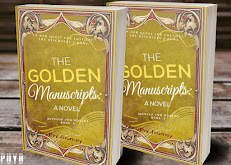







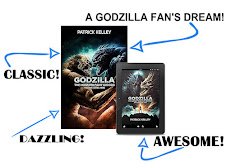






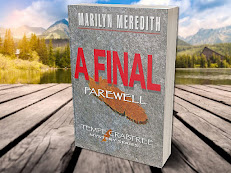

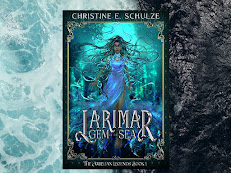

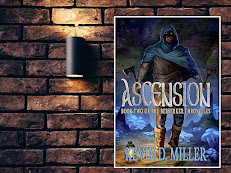

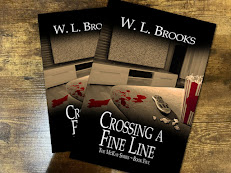



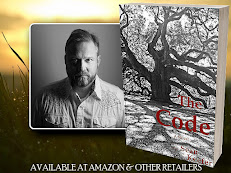



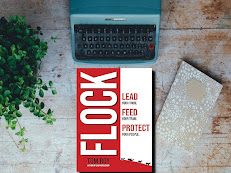













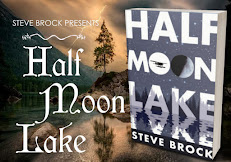











No comments:
Post a Comment
Thank you for your message!